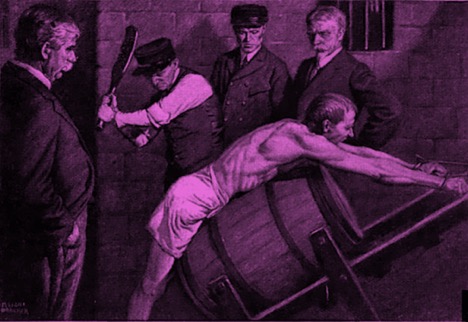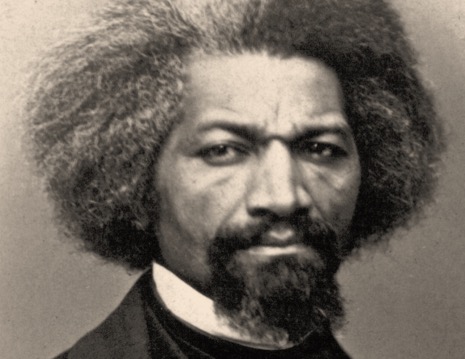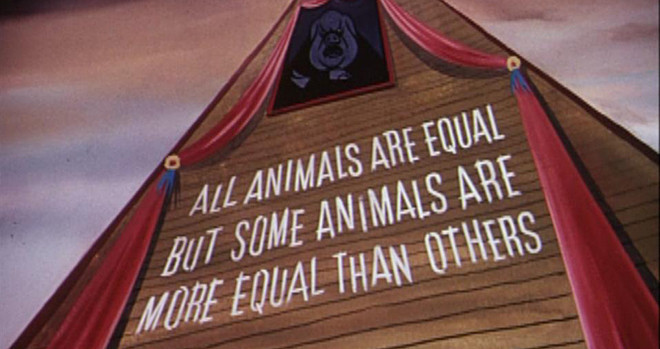Pious identitarian elites punish you for their guilt.
Progressivism’s Aristocratic Fantasies

Identity politics offers disenchanted radicals one more shot at utopia.
David Azerrad gives a thoughtful treatment of the origins and essence of identity politics, one that will be useful for those curious about the genesis of our shibboleths: structural racism, intersectionality, white privilege, wokeness. I commend Azerrad for presenting an intelligent, provocative thesis at all; academics whisper these ideas, but few pen them. On question of origins, I will add some comments, and on the question of essence, I must beg to differ.
Identity Politics as Nihilism
In the late 1960s and early 1970s, race, class, and gender groups had “legitimate grievances” for unequal treatment, but broke with the civil rights movement (3, 12).1 They turned to identity politics, a metaphysics (“the most fundamental dimension of reality”) that disavows nature, or “objective reality,” and frames all relations in terms of power (5, 15). This is more than an “Americanized version of tribalism;” it “is first and foremost a politics…of oppression” that “celebrate[s] victimization” (2, 3, 2). According to Malcolm X and Armando Rendon, whites “are born devils by nature” (5-7). In consciousness-raising, a victim becomes woke to the institutionalized oppression that explains otherwise unrelated phenomena, and one must take sides in the struggle.
That struggle is against America, which for the woke “is at its core a supremacist regime that oppresses certain groups” (5). Because oppression is structural, social justice requires more than individual reformation; it requires a political restructuring. But given the impracticality of total revolution, radicals adopted “a third way between integration and revolution” (14). Abandoning claims to universal justice, they adopted “realpolitik,” in which oppressed groups unify in solidarity to wrest power from a “common enemy”: white, male, heterosexual capitalists (15, 7n40, 9). Identity groups must fight for “recognition, special treatment, and active government intervention…to eliminate disparities” (18). But the true essence of identity politics, Azerrad argues, is nihilism: whites, burdened by guilt, “speak of racism, sexism, homophobia, and transphobia in the language of original sin” (21). They seek not atonement but self-annihilation—they are not “entitled to an identity of which they can be proud” (22).
Azerrad challenges the primacy of oppression by pointing to the incoherence of identity groups like “African” or “Asian” (8). Justice is achieved, he argues, not by subverting, but by affirming the American “constitutional framework,” which includes “the Civil Rights and Progressive amendments” to achieve “equal rights and the equal protection of the law” (12). Martin Luther King, Jr., Frederick Douglass, the Seneca Falls Declaration, and the homophilia movement (13, 13n85) are civil rights exemplars that endorsed those principles without denigrating them: “[T]hey framed their struggle as a vindication of American ideals…[T]hey held out the promise of integration, assimilation, civic friendship, and equal citizenship under the law” (13).
Identity Politics as Human Flourishing
The radical revolt was rooted in the liberals’ promises and their evident hypocrisy on race, class, and gender.
Stamping out fascism (racist opinions2) abroad and at home, liberals promised to achieve (with the aid of science) a colorblind society, the end of poverty, and gender self-fulfillment. These promises went beyond both the original constitutional framework (reinterpreting equal protection to mean disparate group treatment) and their own desire to fulfill them. But if private business should be desegregated, the radicals protested, then all forms of oppression should be eliminated, and done so in all private associations and relations, not just in business.
The greatest liberal hypocrisy was in internationalism. Decrying the old “isolationism,” liberals brought “democracy” to the world: the United Nations; a global New Deal called the Marshall Plan; a Great Society in Vietnam.3 But they could never tease apart realpolitik—dictatorial rule and economic interest—from their supposed benevolence. At home, SWAT teams began to occupy US cities like foreign nations.4
Identity politics is thus inseparable from global struggle.
Malcolm X, Stokely Carmichael, Bobby Seale, and Eldridge Cleaver were strongly influenced by Frantz Fanon,5 who showed the repressive and oppressive strategies of imperial powers—how they shape the identities of colonized peoples. “Assimilation” meant the destruction of old identities.6 Fanon’s solution, endorsed by Jean-Paul Sartre, was violent revolution against Western imperialism.7 Claiming to be colonized peoples within the United States, Black, Brown, Red, Yellow, and gender identity groups formed a “rainbow coalition” against the liberals’ pseudo-scientific authority at home, and united in solidarity with oppressed groups in the “struggle against imperialism all around the world.”8 In 1967, radical feminists declared, “We seek the liberation of all human beings. The struggle for liberation of women must be part of the larger fight for human freedom.”9 In 1970 Robin Morgan affirmed that “a worldwide Women’s Revolution [is] the only hope for life on the planet.”10 In 1971 Dennis Altman included gay liberation as part of the broader struggle for “freedom for the fulfillment of human potential.”11
Azerrad’s fundamental claim is that identity politics is nihilistic—and he is in good company.12 But there is something odd in making this claim about a group that has risen to dominance in politics, universities, and moral authority, confidently destroying those who challenge it. Identity groups are only part of a much broader order. Making arguments about human nature and the good life (not mere power), political philosophers have long criticized “modernity” and the liberal nation state, teaching a return to the polis or progress to some transcendent order. Leftist philosophers, pointing to global problems that nation states seem incapable of solving, have imagined a global political order that would provide the conditions for both philosophy and human flourishing.
Herbert Marcuse’s “Aesthetic State” is grounded in his argument for the erotic philosophical soul.13 Noam Chomsky appeals to an “instinctual base for our moral judgments,” manifest in the capacity for language.14 Reason could guide these instincts or “moral sentiments,” Peter Singer argues, toward the duties of a cosmopolitan commonwealth, if its maxims were made binding.15 Iris Marion Young grounded her politics of difference on Marcuse’s eudemonism: “Desire, the desire to be happy, creates the distance, the negation, that opens the space for criticism of what is.”16
Carrying out this program against “white nationalism,” whites must join in solidarity with oppressed groups not to destroy themselves, but other whites with whom they no longer identify, thus appearing nihilistic.17 Cleaver, praising the white youth who had taken up arms against their white elders, wrote, “There is in America today a generation of white youth that is truly worthy of a black man’s respect.”18 Huey Newton, distinguishing between “white liberals” and “white radicals,” said, “We don’t hate white people, we hate the oppressor”; thus white radicals should join in the struggle by “turning away from the establishment” and aiding oppressed peoples.19 Admitting one’s white privilege is not supposed to entail wallowing in guilt, nor rejecting one’s identity, but answering a call to social responsibility. Considering the “Souls of White (and Straight and Middle-Class and Male) Folk,” Michael Kimmel writes, “This posture of guilty self-negation cannot be our final destination…. Refusing to be men, white, or straight does neither the privileged nor the unprivileged much good.”20
Azerrad recognizes the progressive call to transcend group identity (denying all race essences21) to human liberation and democratic socialism, but he maintains that identity politics is defined by what it is not and aims only at power (4, 8-11, 15-6). Yet progressivism has a positive ethical, moral, and political program. Progressive psychologists argue that the United States has ignored the “human needs of its people and those of the rest of the planet,” but “the social and behavioral sciences…can articulate a vision of the good life that is empirically sound.”22 Rejecting “ethical relativism” and appealing to “human nature,” they teach the virtues “endorsed across every major religious and cultural tradition.”23 Far from anything goes, progressives seek to impose codes for speech, sex, and diet.24 Recognizing the importance of group identity for individual growth, they publicly support and reinvigorate diverse communities that are crucial for identity formation.25 Moving beyond redistributive policies of affirmative action, they seek to esteem and empower identity groups by representation in government, the sciences, and the workplace.26 Corporations and universities voluntarily apply extensive anti-discriminatory policies, fire employees for hateful speech or opinions, and police the contents of social media.
Politically, progressives reject liberalism, a theory limited to public procedural justice (extending neither to oppression and domination in private life nor to globalist visions), and adopt democratic socialism.27 Celebrating “blue state” family-friendly values, they use family courts to prevent relations of domination in private life.28 Theorists have heralded the rise of “global cities” as the nexuses of a new global political order, which may be achieved by reforming international institutions like the United Nations, World Trade Organization, and World Bank. Ultimately, Singer and David Held argue, “states [must] give up, to a world federation, a monopoly of the use of force.”29 From 1970s Earth Day and Spaceship Earth to today’s Global Village, progressives have long taught a “sense of global citizenship:” a “cosmopolitan outlook is the necessary condition of a multicultural society in a globalizing order.”30
In the United States, identity politics seems to be the optimal way for an elite class to eliminate the old middling element that often opposes it and control a growing mass of disenfranchised former-Americans and migrants. In the reemergence of an aristocracy, Progressives claim the right to rule by merit, birth, wealth, and education, as well as by helping the disadvantaged:31 Ivy League schools direct genius in technologies like renewable energy, prudence in furthering global initiatives, and courage in advancing a cosmopolitan order against nationalistic identities. The best and the brightest move to finance and technology sectors, universities with billion dollar endowments, and superzips surrounding Versailles on the Potomac, where they rule by administrative fiat. To secure this order, they pledge to import a new electorate, abolish the Electoral College, and pack the Supreme Court.32
Call it undesirable, malfunctioning, or tyrannical—but contrary to nihilist self-negation, this neo-feudal order could last a long time.
Is the rest of the country doomed to look like Paris—gentrified progressive, commercial cities, inhabited by a new aristocracy, surrounded by sprawling, crime-ridden suburbs? Not if it listens to Azerrad, who warns that the rise of one identity politics will lead to another.
There are a few points in his favor. Rule by administrative fiat instead of law results in partiality and injustice, both in the failure to protect rights and in disparate treatment. Also, the rule of an identity politics priesthood has revealed its hypocrisy, self-interest, and incompetence, thus undermining its claims to right, and exposing the underlying relation of mastery.
“Democracy” has no moral authority when California Democrats harvest the ballots of a dependent populace, or when unelected bureaucrats and lawyers in distant populations in D.C., New York, and California claim the right to rule, without consent, their outlying colonies, and control the lives of their families, churches, and schools.33 This naked power will become starker as we approach unsustainable $800 billion interest payments on our national debt, and our top-heavy mandarins must forcibly extract surplus from the subjects it is paid to monitor.34
Unlike other conservatives who embrace James Burnham—who, like Trotsky, thought the problem of Stalin’s bureaucracy could be solved by new blood in the managerial elite—Azerrad champions the nation state and the rule of law.
Notes
[1] All parenthetical citations are to David Azerrad, “The Promises and Perils of Identity Politics,” Heritage Foundation, First Principles Series, No. 72 (2019).
[2] T.W. Adorno, Else Frenkel-Brunswik, Daniel J. Levinson, and R. Nevitt Sanford, The Authoritarian Personality, Studies in Prejudice Series, Vol. 1 (Harper & Brothers, American Jewish Committee, 1950), extended the study of Nazi antisemitism to white racism in America.
[3] On Lyndon Johnson’s goals to fund a TVA for the Mekong River and bring democracy to Vietnamese hamlets, see Walter A. McDougall, Promised Land, Crusader State (New York: Houghton Mifflin Company, 1997), 172, 190-1; on the Marshall Plan, see 164, 180-1.
[4] Radley Balko, “Rise of the Warrior Cop: Is it time to reconsider the militarization of American policing?” The Wall Street Journal, August 7, 2013: https://www.wsj.com/articles/rise-of-the-warrior-cop-1375908008: “The country’s first official SWAT team started in the late 1960s in Los Angeles. By 1975, there were approximately 500 such units. Today, there are thousands.”
[5] Stokely Carmichael, “Black Power,” in To Free a Generation: The Dialectics of Liberation, ed. David Cooper (London: Collier Books, 1968), 150, called Fanon one of his “patron saints.”
[6] On banning the woman’s veil in Algeria as a means to undermine household authority, see Frantz Fanon, A Dying Colonialism (New York: Grove Press, Inc., 1965), 35-67.
[7] Jean-Paul Sartre, “Preface,” in Frantz Fanon, The Wretched of the Earth, tr. Constance Farrington (New York: Grove Press, 1963), 20-5.
[8] Carmichael, “Black Power,” 161, 165.
[9] “Liberation of Women,” New Left Notes, July 10, 1967, in Sarah Evans, Personal Politics: The Roots of Women’s Liberation in the Civil Rights Movement & the New Left (New York: Alfred A. Knopf, 1979), 242.
[10] Robin Morgan, Sisterhood is Powerful (New York: Vintage Books, 1970), xxxv.
[11] Dennis Altman, Homosexual Oppression and Liberation (New York: Discuss Books, 1973), 95.
[12] Azerrad is updating the charge made by Leo Strauss, Liberalism Ancient and Modern (Chicago: The University of Chicago Press, 1968), 223; The Political Philosophy of Hobbes (Chicago: The University of Chicago Press, 1963), xv; Allan Bloom, The Closing of the American Mind (New York: Simon and Schuster, 1987), 25; Charles Kesler, I am the Change: Barack Obama and the Future of Liberalism (Broadside Books, 2012), xiii-iv, 227.
[13] Marcuse, Eros and Civilization (Boston: Beacon Press, 1966), 166, 197.
[14] Noam Chomsky, “Noam Chomsky on John Rawls,” Youtube: https://www.youtube.com/watch?v=E6Cqi_W8PmI; on human nature, Noam Chomsky and Michel Foucault, The Chomsky-Foucault Debate on Human Nature (New York: The New Press, 2006), 7.
[15] Peter Singer, One World Now (New Haven, CT: Yale University Press, 2016), 15; The Life You Can Save (New York: Random House, 2010), 153.
[16] Iris Marion Young, Justice and the Politics of Difference (Princeton, NJ: Princeton University Press, 1990), 6.
[17] Marcuse, Eros and Civilization (Boston: Beacon Press, 1966), xvi, xx: in this “romantic” struggle, the youth will “revolt against the false fathers, teachers, and heroes—solidarity with the wretched of the earth”; Sartre, “Preface,” 22-5; on how the new radicalism will appear nihilistic, see Marcuse, Eros, 165.
[18] Eldridge Cleaver, Soul on Ice (New York: Delta, 1992), 106, 92.
[19] “Huey Newton Talks to the Movement About the Black Panther Party, Cultural Nationalism, SNCC, Liberals and white Revolutionaries,” Students for a Democratic Society (August, 1968), 5, 7.
[20] Michael Kimmel, Privilege: A Reader, ed. Kimmel and Abby Ferber (Boulder, CO: Westview Press, 2003), 8-9; James E. Crowfoot and Mark A. Chesler, “White Men’s Roles in Multicultural Coalitions,” in Privilege, 361-4.
[21] On the rejection of the essence of blackness, see Stuart Hall, “New Ethnicities,” in Race, Culture & Difference, ed. James Donald and Ali Rattansi (London: Sage Publications, 1992), 252, 254.
[22] Martin Seligman and Mihaly Csikszentmihalyi, “Positive Psychology: An Introduction,” American Psychologist 55, No. 1 (January, 2000): 5.
[23] Seligman, Authentic Happiness (New York: Free Press, 2002), 129-30.
[24] See Christopher Lebron, The Color of Our Shame (New York: Oxford University Press, 2015), 14; Scott Horsley, “White House Sends Schools Guidance On Transgender Access To Bathrooms,” NPR, May 16, 2016: https://www.npr.org/sections/thetwo-way/2016/05/13/477896804/obama-administration-to-offer-schools-guidance-on-transgender-bathrooms; Rachel Weiner, “The New York City soda ban explained,” Washington Post, March 11, 2013: https://www.washingtonpost.com/news/the-fix/wp/2013/03/11/the-new-york-city-soda-ban-explained/?utm_term=.453d1795b4af
[25] Charles Taylor, Multiculturalism: Examining the “Politics of Recognition” (Princeton, NJ: Princeton University Press, 1994), 38, argues that “assimilation” is a “cardinal sin against the ideal of authenticity.”
[26] Young, Justice, 8-9, see 8-12, 15-38, 68; on integration and reparations, Charles Mills, The Racial Contract (Ithaca, NY: Cornell University Press, 1997), 36-40.
[27] Young, Justice, 38, 81, demands a political revolution for “thorough social and political democracy,” while Rawlsian liberalism discards the democratic framework for institutions that seek to contain social justice and reincorporate them back into the distributive model. Rawls, Justice as Fairness: A Restatement, ed. Erin Kelly (Cambridge, MA: Harvard University Press, 2001), 11; see 10n8, 12, 72, 93, 100, 163, 157: “justice as fairness does not seek to cultivate the distinctive virtues and values of the liberalisms of autonomy and individuality, or indeed any other comprehensive doctrine. For in that case it ceases to be a form of political liberalism.” Okin, Justice, 89-109; Tracy E. Higgins, “Gender, Why Feminists Can’t (or Shouldn’t) Be Liberals,” Fordham Law Review 72, Iss. 5 (2004): 1629-41, and Andrew F. Smith, “Closer But Still No Cigar: On the Inadequacy of Rawls’s Reply to Okin’s “‘Political Liberalism,’ Justice, and Gender,” Social Theory and Practice 30, No. 1 (January, 2004): 59-71.
[28] Anthony Giddens, The Third Way (Cambridge: Polity Press, 1998), 89, 95; Susan Moller Okin, Justice, Gender, and the Family (New York: Basic Books, Inc., Publishers, 1989), 180; Mona Harrington, Care and Equality: Inventing a New Family Politics (New York: Alfred A. Knopf, 1999); Naomi Cahn and June Carbone, Red Families v. Blue Families: Legal Polarization and the Creation of Culture (New York: Oxford University Press, 2010).
[29] Singer, One World: the Ethics of Globalization (New Haven, CT: Yale University Press, 2004), xiii-iv; David Held, “Cosmopolitan Democracy and the Global Order: Reflections on the 200th Anniversary of Kant’s Perpetual Peace,” Alternatives: Global, Local, Political 20, No. 4 (October-December, 1995): 426.
[30] Giddens, Third Way, 130, 136.
[31] Chrystia Freeland, “The Rise of the New Global Elite,” The Atlantic (January/February 2011): https://www.theatlantic.com/magazine/archive/2011/01/the-rise-of-the-new-global-elite/308343/; Matthew Stewart, “The 9.9 Percent Is the New American Aristocracy,” The Atlantic (June 2018): https://www.theatlantic.com/magazine/archive/2018/06/the-birth-of-a-new-american-aristocracy/559130/
[32] Asma Khalid, “Democrats Used To Talk About ‘Criminal Immigrants,’ So What Changed The Party?” NPR, February 19, 2019: https://www.npr.org/2019/02/19/694804917/democrats-used-to-talk-about-criminal-immigrants-so-what-changed-the-party; Pema Levy, “How Court-Packing Went From a Fringe Idea to a Serious Democratic Proposal,” Mother Jones, March 22, 2019: https://www.motherjones.com/politics/2019/03/court-packing-2020/; Li Zhou, “Senate Democrats introduce a constitutional amendment to abolish the Electoral College,” Vox, April 3, 2019: https://www.vox.com/2019/4/3/18292513/abolish-electoral-college-senate-brian-schatz-kirsten-gillibrand-elizabeth-warren
[33] On ballot harvesting, Alex Padilla, California Secretary of State, “Elections and Voter Information,” January 1, 2019: https://www.sos.ca.gov/elections/voting-resources/voting-california/help-strengthen-our-democracy/poll-worker-info/poll-worker-training-standards/section-one/
[34] Bob Bixby and Maya MacGuineas, “Why the Federal Debt Must Be a Top Priority for the 2016 Presidential Candidates,” Brookings Institute, November 18, 2015, https://www.brookings.edu/wp-content/uploads/2016/07/Bixby-MacGuineas_FINAL.pdf.
The American Mind presents a range of perspectives. Views are writers’ own and do not necessarily represent those of The Claremont Institute.
The American Mind is a publication of the Claremont Institute, a non-profit 501(c)(3) organization, dedicated to restoring the principles of the American Founding to their rightful, preeminent authority in our national life. Interested in supporting our work? Gifts to the Claremont Institute are tax-deductible.
We need courage to replace the politics of special privilege with the politics of equal justice.
Our adversarial multiculturalism urges majority groups to disown their identity and minorities to cling to theirs.
Identity politics legitimizes inequality and the moral superiority of its elite.
America can't stand the retributive injustice of identity politics.





